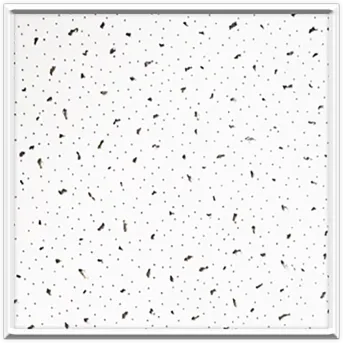Nov . 11, 2024 11:43 Back to list
mineral wool board r value
Understanding Mineral Wool Board R-Value Benefits and Applications
When it comes to insulation materials, understanding the R-value is crucial for anyone seeking to enhance energy efficiency in buildings. The R-value measures a material's resistance to heat flow; the higher the R-value, the better the material insulates. Mineral wool board, often referred to as rock wool or stone wool, is a popular insulation option that boasts impressive R-values and various benefits. In this article, we will delve into the characteristics, advantages, and applications of mineral wool board based on its R-value.
What is Mineral Wool Board?
Mineral wool board is produced from natural or recycled materials, primarily basalt rock or slag, which are melted down and spun into fibers. This unique production process results in a lightweight, fire-resistant, and sound-absorbing insulation material. Unlike traditional fiberglass insulation, mineral wool offers superior water resistance and does not support mold growth, making it a suitable choice for a variety of environments.
R-Value of Mineral Wool Board
The R-value of mineral wool board typically ranges from R-3.0 to R-4.0 per inch of thickness, depending on the specific product and its density. This R-value is comparable to that of other insulation materials, such as fiberglass, and in some cases can be even higher. The performance of mineral wool in thermal resistance is influenced by its fiber structure and density, which create air pockets that trap heat.
Benefits of High R-Value in Mineral Wool Board
1. Energy Efficiency A higher R-value indicates better insulation, which translates to reduced heating and cooling costs in buildings. Using mineral wool board for insulation can significantly lower energy bills, especially in climates with extreme temperature fluctuations.
2. Fire Resistance Mineral wool is inherently fire-resistant due to its mineral composition. It can withstand temperatures up to 1,200 degrees Celsius (2,192 degrees Fahrenheit) without melting or contributing to the spread of fire. This makes it an ideal choice for commercial buildings where safety regulations are stringent.
mineral wool board r value

3. Sound Absorption The dense composition of mineral wool fibers allows it to absorb sound effectively, reducing noise pollution both within a building and from external sources. This characteristic is particularly beneficial in residential units, schools, and offices.
4. Moisture Resistance Unlike organic insulation materials, mineral wool does not absorb water, which helps prevent mold and mildew growth. This moisture resistance is essential in areas prone to high humidity, ensuring the longevity of the insulation and improving indoor air quality.
5. Sustainability Many mineral wool products are made from recycled materials, making them an environmentally friendly option. They also have a long lifespan, which contributes to sustainability efforts in construction.
Applications of Mineral Wool Board
Mineral wool board is versatile and can be used in various applications, including
- Wall Insulation Suitable for exterior and interior walls, providing thermal and acoustic insulation, as well as fire protection. - Roof Insulation Ideal for flat and pitched roofs, helping to reduce heat loss and improve energy efficiency. - Floor Insulation Used in both below-grade and above-grade applications to minimize heat transfer and improve comfort.
- Industrial Applications Perfect for insulation in industrial processes where high-temperature resistance and sound absorption are required.
Conclusion
The R-value of mineral wool board is an essential aspect to consider when selecting insulation materials for construction or renovation projects. Its unique properties—high thermal resistance, fire safety, sound absorption, moisture resistance, and sustainability—make it a superior choice for both residential and commercial buildings. By investing in mineral wool board, homeowners and builders alike can achieve greater energy efficiency, enhanced safety, and improved comfort, making it a worthwhile addition to any construction project. Whether building new structures or retrofitting older ones, mineral wool board proves to be a reliable insulation solution in today’s energy-conscious world.
-
Quality Ceiling Trap Doors & Access Panels | Easy & Secure AccessNewsAug.30,2025
-
Durable Ceiling T Grid Systems | Easy InstallationNewsAug.29,2025
-
PVC Gypsum Ceiling: Durable, Laminated Tiles for Modern SpacesNewsAug.28,2025
-
Pvc Gypsum Ceiling Is DurableNewsAug.21,2025
-
Mineral Fiber Board Is DurableNewsAug.21,2025
-
Ceiling Tile Clip Reusable DesignNewsAug.21,2025







